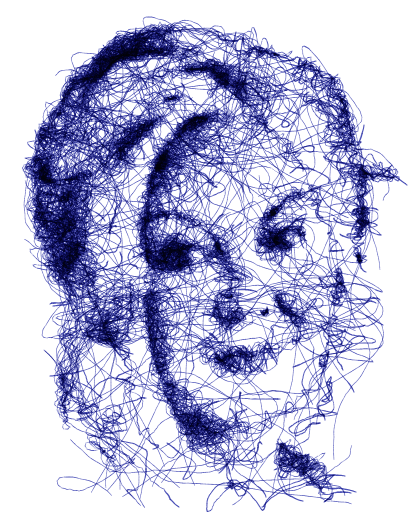Biography de Joke J. Hermsen, writer and philosopher

Joke J. Hermsen (born 1961) is a Dutch writer and philosopher. She studied art and philosophy in Paris before completing a thesis on nomadic thought at Utrecht University. Hermsen is the author of several novels and philosophical essays, exploring themes such as time, hope, and attention. Her works include Het dameoffer, Tweeduister, Blindgangers, and Stil de tijd, which won the Jan Hanlo Prize. She is recognized for her approach combining literature and philosophy, and her writings have been translated into multiple languages.
Biografie van Joke J. Hermsen, schrijfster en filosofe
Joke J. Hermsen (geboren in 1961) is een Nederlandse schrijfster en filosofe. Ze studeerde kunst en filosofie in Parijs voordat ze een proefschrift schreef over het nomadische denken aan de Universiteit Utrecht. Hermsen is de auteur van verschillende romans en filosofische essays, waarin ze thema’s zoals tijd, hoop en aandacht onderzoekt. Haar werk omvat Het dameoffer, Tweeduister, Blindgangers et Stil de tijd, dat de Jan Hanlo-prijs won. Ze staat bekend om haar benadering die literatuur en filosofie combineert, en haar geschriften zijn in meerdere talen vertaald.
Without hope, we cannot believe in the promise of a new beginning, nor in the possibility of change.
Zonder hoop, kunnen we niet geloven, in de belofte van een nieuw begin, noch aan de mogelijkheid van verandering.
A poem-chair
“I adopted the chair, this familiar object, a few decades ago, at a time when I wanted to create art on a human scale in public spaces, while everywhere else people opted for the monumental: it is an object shaped like the body and serves the body. It is difficult to feel exclusive ownership of an object so universally shareable. It is mine when I occupy it, but if I leave it, someone else can claim it as their chair.” Michel Goulet, artist-sculptor
The project Prendre position
Prendre position is a sculpture-installation project of 47 chair-poems to mark the 100th anniversary of the Cité internationale universitaire de Paris. They were installed in a flowered meadow created especially for the occasion by the campus estate service.
This artistic installation was conceived by the Quebecois artist-sculptor Michel Goulet, in collaboration with François Massut, founding director of the collective Poésie is not dead.
Each house on the campus is represented by a chair, thanks to a donation from the Maison des étudiants canadiens and the support of the Labrenne group. Each of the 47 chairs is a unique work.
History and architecture of the house
The Collège néerlandais is the only work by Willem Marinus Dudok built in France, thus serving as a unique testament to one of the most prominent architects of the Dutch school active between the wars. The initiative for its construction came from an action committee created in 1924 by Frans Vreede, director of the Dutch Studies Center in Paris.